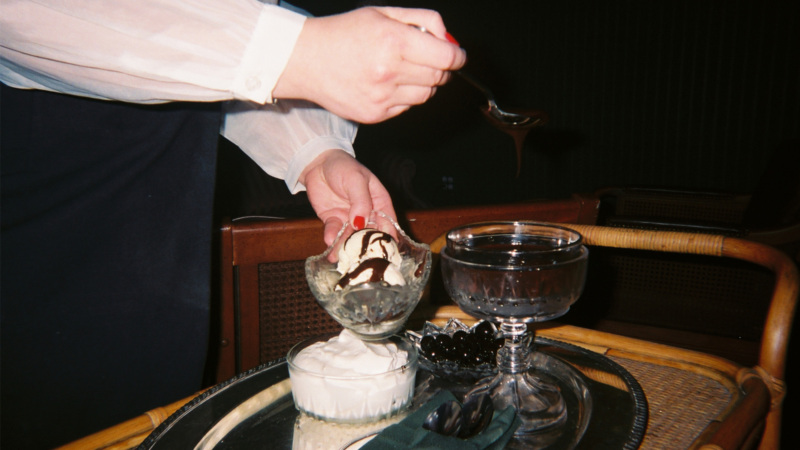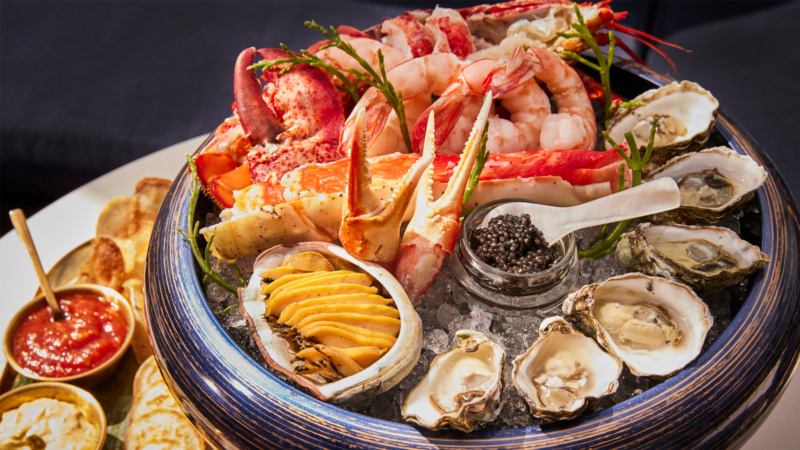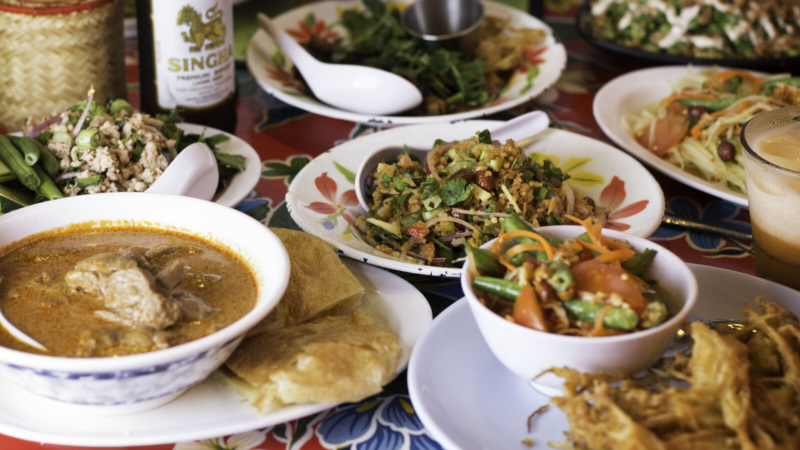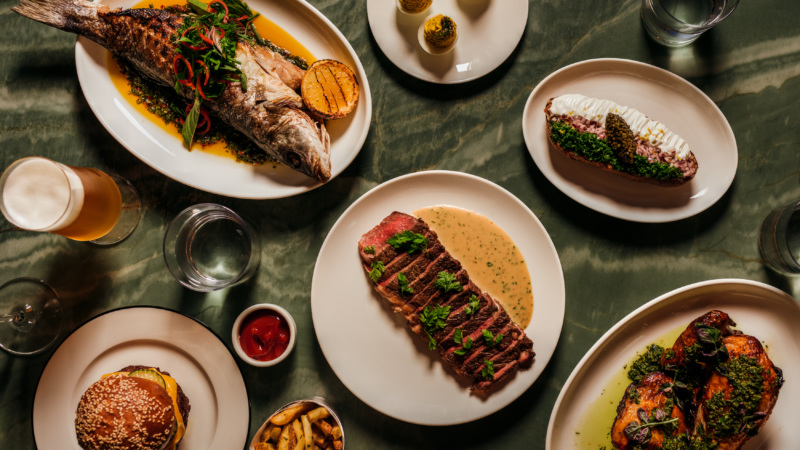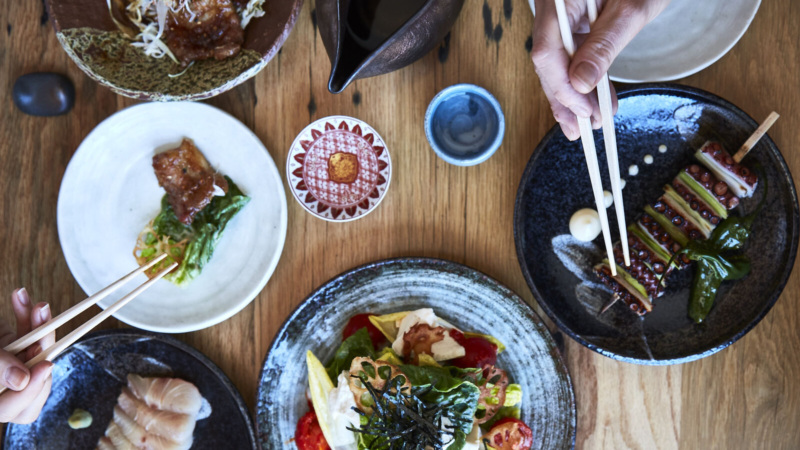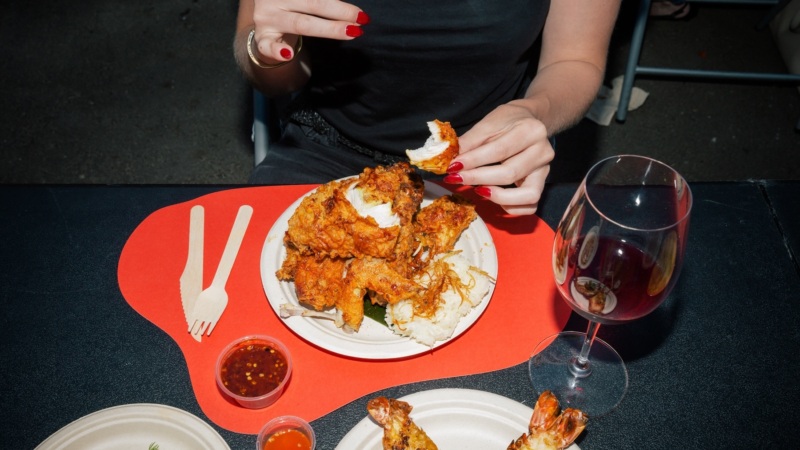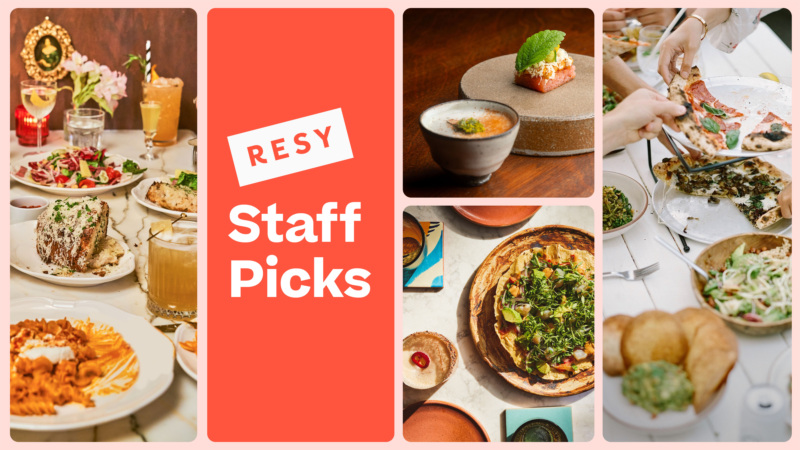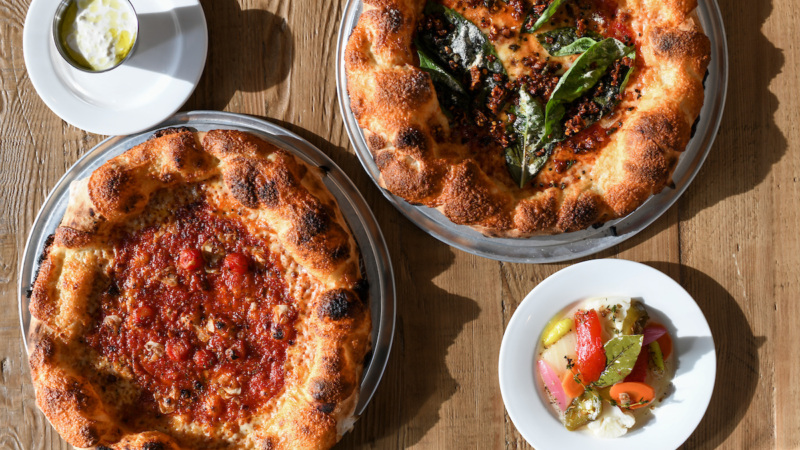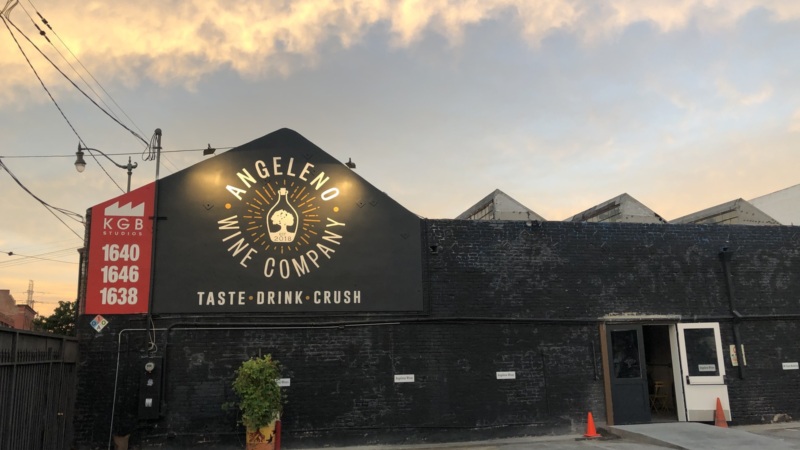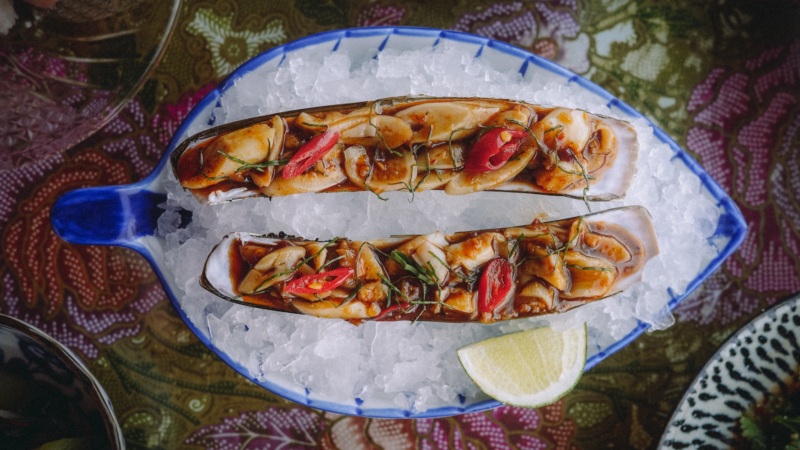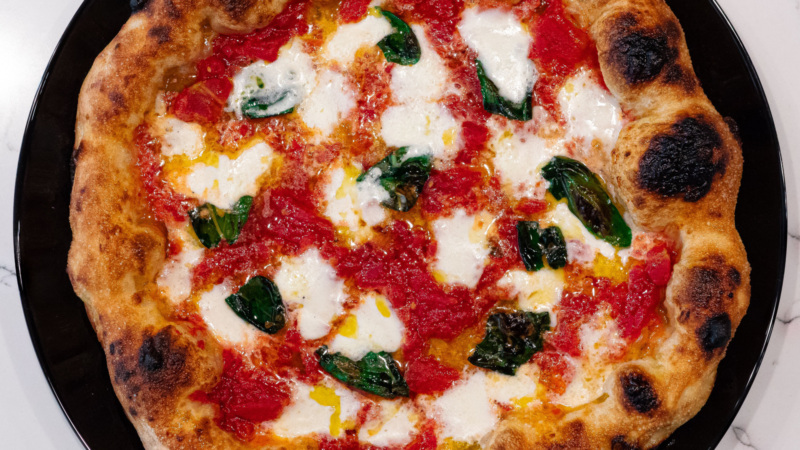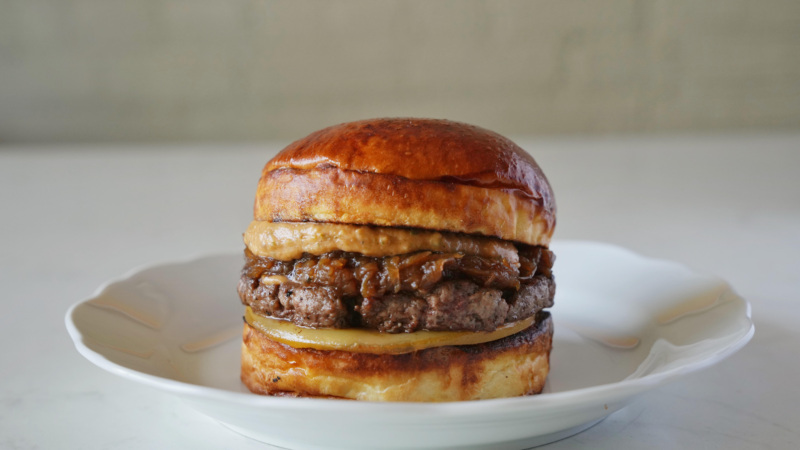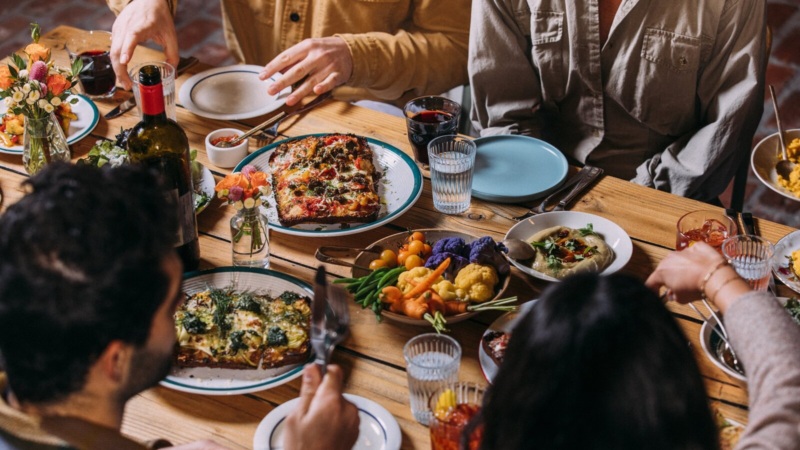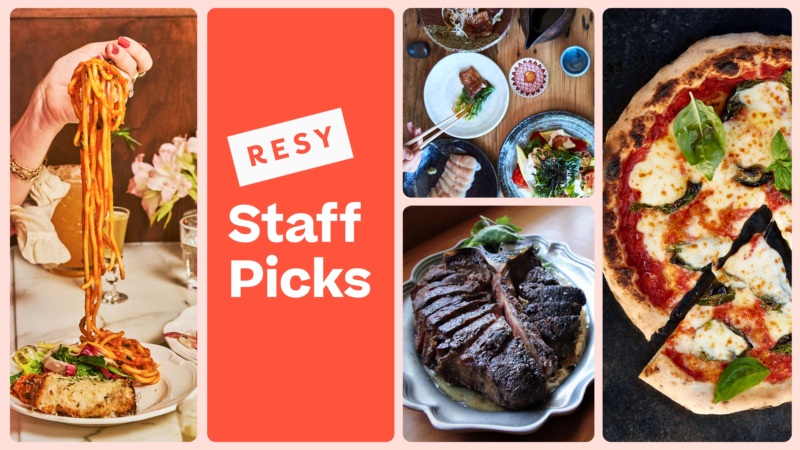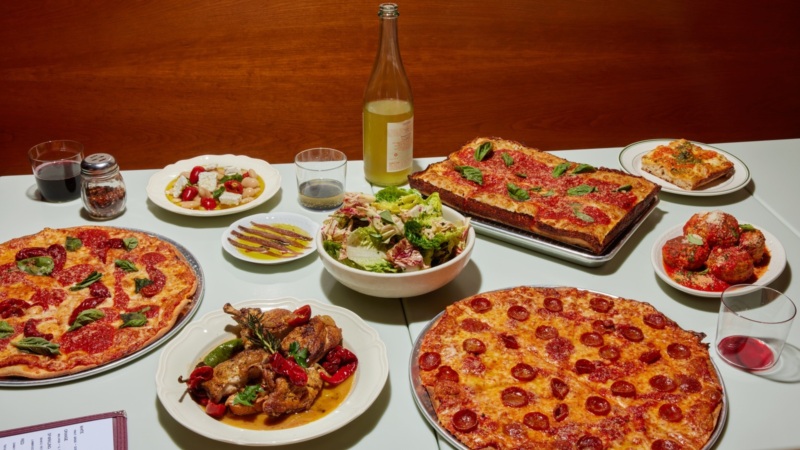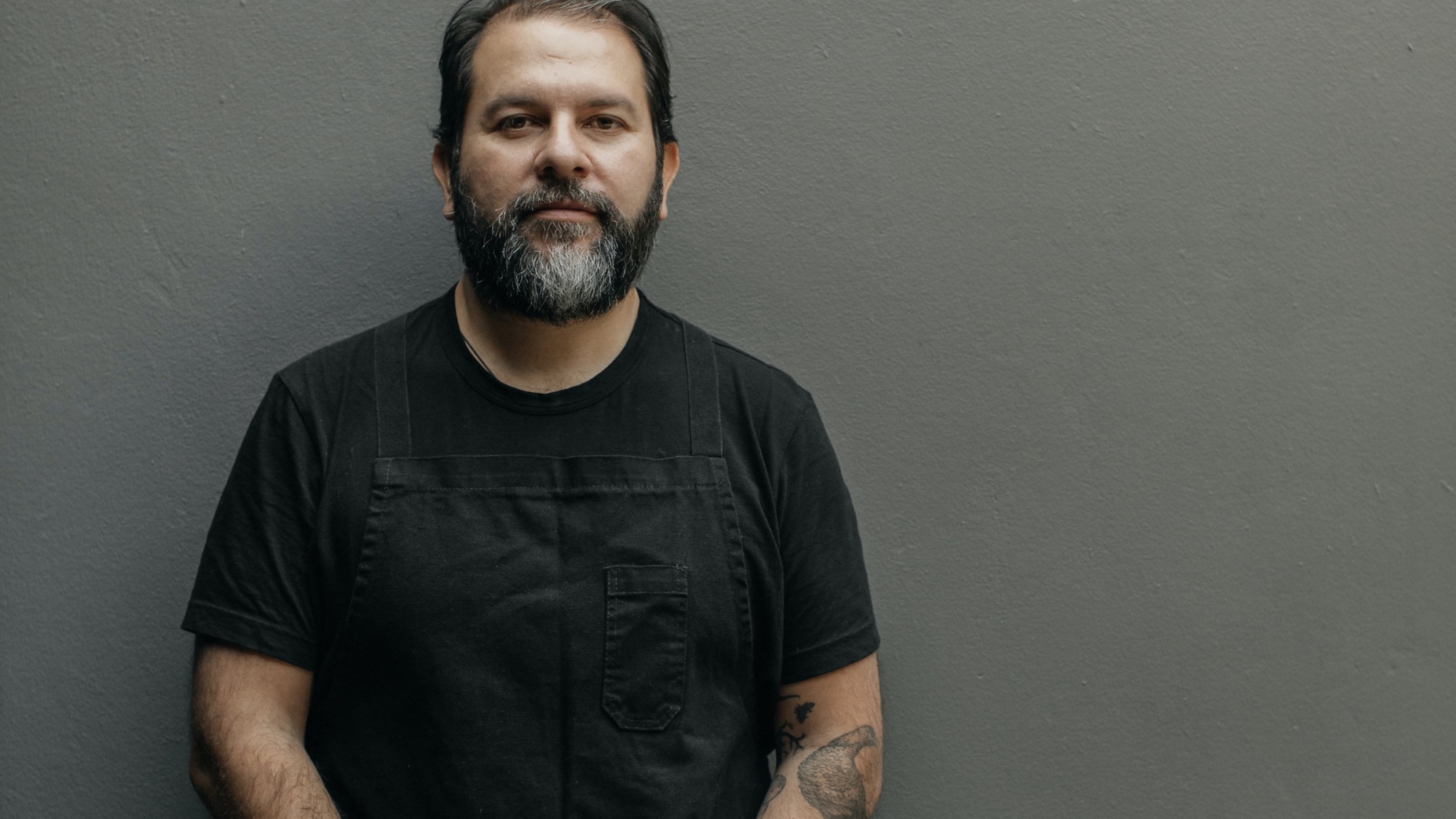
Enrique Olvera on Opening Damian During a Pandemic, L.A.’s Many Cuisines, and More
Even in a region filled with thousands of restaurants, loncheros, taquerias, and other small family-run food businesses featuring myriad regional Mexican specialties, it’s big news that chef Enrique Olvera opened a restaurant in Los Angeles.
Known first and foremost for using avant-garde techniques on time-tested Mexican dishes at Pujol in Mexico City, and adding flair to East Coast Mexican dining with Cosme and Atla in New York, Olvera doesn’t replicate. He takes a little something from each experience, and builds anew. Damian, which opened in October, and takeout-only Ditroit (the only one of two currently open, due to COVID mandates) are his latest.
Of course, L.A. has long been identified with the cooking of Mexico. Being able to find birria des res from Jalisco, rich moles passed down by generations of Oaxacans, and Sinoloan pescado zarandeado makes the food scene that much vibrant. And don’t even try to count the types of tacos you can find just about anywhere. But true Los Angeles cuisine isn’t dictated or influenced by any one country or culture; it’s the combined many that make up our collective soul. It’s why we’re often the eye of the storm for trends and change. And it’s why Olvera decided to come here next.
He is not the first high-profile chef to arrive with a modern take on Mexican cuisine. Nor is he the first to incorporate inspiration — from other cultures, from the flavors from L.A. neighborhoods, from our seasonal bounty. But dishes like Damian’s albacore carnitas, carne asada with chile relleno and tabouleh, and shishito toreados with scallions and soy sauce make an impact.
Opening the Arts District spot during a pandemic was a particular challenge for Olvera and his team — which includes chef de cuisine Jesús Cervantes, manager Ana Odermatt, and beverage director Jun Kwon; it compounded what already had included unexpected delays and reorganization — including Daniela Soto-Innes, the chef-partner of Cosme, not overseeing the project, as previously was announced. (On Dec. 6, Soto-Innes announced she also was leaving Cosme, although she would remain involved with Elio, Olvera’s Las Vegas project.) But they’ve moved ahead quickly in recent months, showing the kind of adaptability and tenacity his restaurant group has become known for.
Olvera talked to us about importing and blending flavors from around the world for his first West Coast project, about local cuisine seen through his lens, and how it adds to the conversation about Mexican food in L.A. and beyond.
This interview has been lightly edited for length and clarity.
What made you want to do something new and different from Cosme and Pujol for the L.A. market?
Enrique Olvera: The city itself. We don’t copy-and-paste concepts, so Damian was conceived to be unique since the beginning. The city was one of the main inspirations, its vibe, the local produce, the local cuisine. Also, with the COVID pandemic, we were forced to delay the opening, but that also let our team to discover the city and connect with our neighborhood, with our producers. Having a wide perspective makes easier the connection with the public.
Did you see a hole in our culinary scene here, that something was missing from the L.A. market? Or that you were simply excited to be a part of what’s happening?
The city is vibrant and we are excited to be part of it. That said, I have to say we have a beautiful patio we are very proud of!
What is it about L.A. that most influences your menu?
The proximity with the ocean, the fresh produce. It’s also a place where different cuisines reinvent themselves, and at the same time feel proud of their heritage. That is a huge influence for us.
How are you blending L.A. sensibilities with those from NYC and Mexico City?
We have a strong DNA in our company, and we have defined through the years the kind of food we want to serve, the kind of experience we want to offer. On the other hand we have an amazing team, they share our values but they also have their own way to connect with the city and we trust them. So I would say the bond between the restaurants is our identity. We like simplicity, excellence, we respect the seasons, the producers, and the produce itself. We also want the customer to have fun.
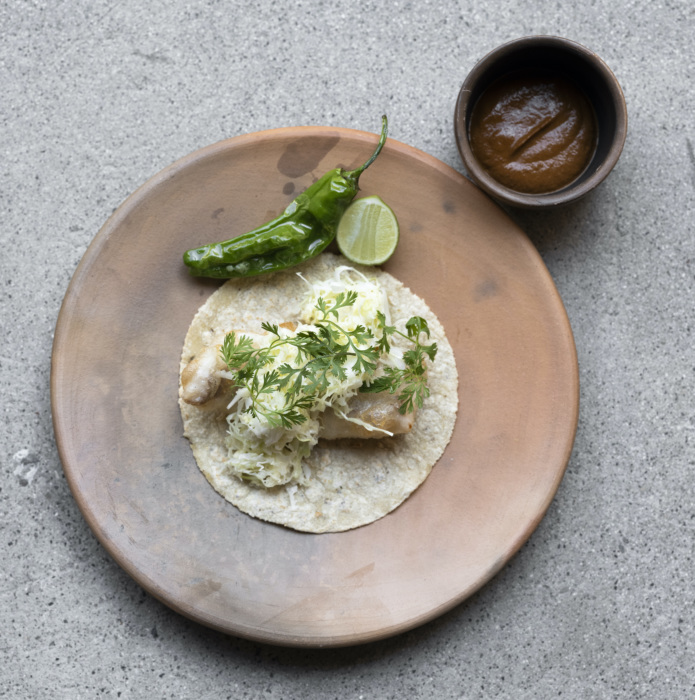
How would you describe Damian’s identity?
We get our inspiration from celebratory food and gatherings of Mexico. But one of our main drivers is working with the best local produce available, and adapting the culinary proposal of the restaurant to the seasons. The menu is built on Mexican ideas and flavors, also inspired by vegetables and catch of the region. The result is a menu influenced by the local cuisine that is undeniably the result of the meeting of different cultures. We embrace it all.
L.A. is known for its enormous regional Mexican food scene, which has been discussed and debated for years. In what way does Damian add to that conversation?
Food and culture are constantly changing, and trying to keep them unmovable would suffocate them.
Opening a new restaurant is always a challenge, but this time you had the pandemic. How did you get around the biggest hurdles?
The opening was delayed, and then we had to open with a limited number of guests. But we always need to adapt and move with the flow. There isn’t another way to survive.
What’s one dish on the Damian menu that you’re most excited about right now?
All of them, but I can’t stop eating the rockfish ceviche with salsa and olive kosho.
Has anything surprised you about the city, about L.A. diners?
The resilience of the city.
What do you see for the future of restaurants in a post-pandemic world?
That we question our practices more than before — our impact on the ecosystems, in the society, and in our health.
- The December Hit List: Found Oyster, Bowery Bungalow, Pearl River Deli, and More
- A New Brush With Fame, Yes, But Casa Vega Has Always Been There For Us
- The Resy Gift Guide: Celebrate the Holidays, Support Restaurants
- The Resy Holiday Guide to Takeout and Delivery in Los Angeles
- All Things Wine: Guides, Recommendations, and More

